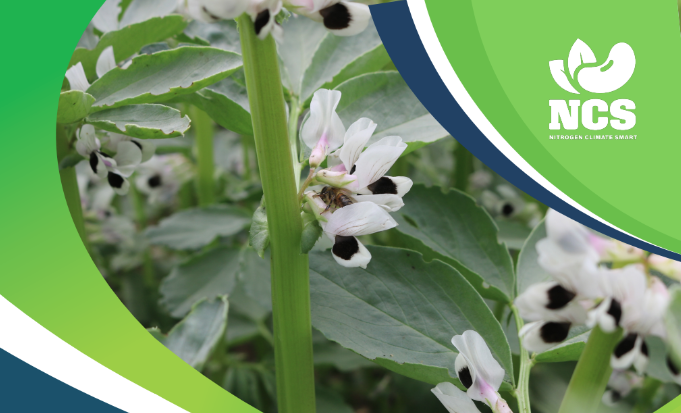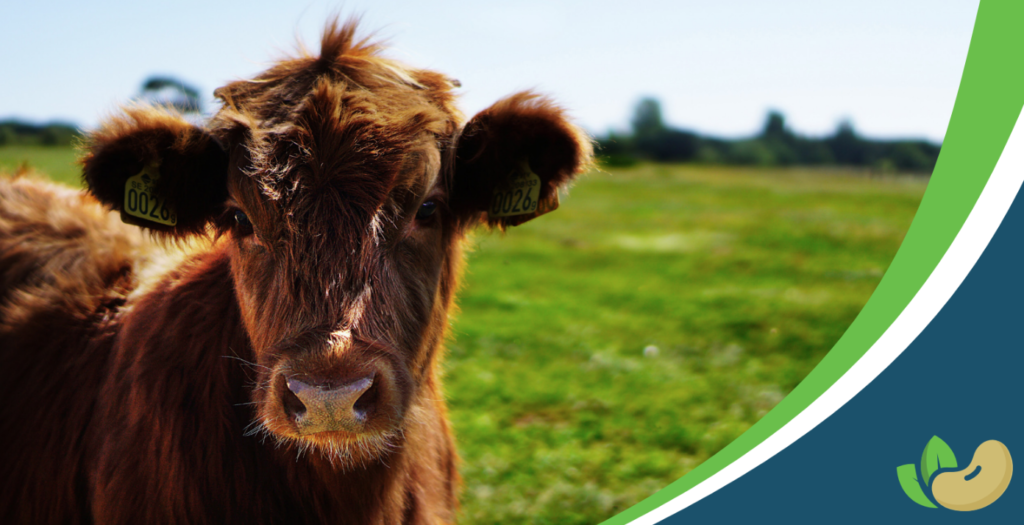
Farmers working with scientists to achieve the best from pulse crops and reduce their carbon emissions. Led by farmers, backed by science
FCT is part of a consortium of project contributors and would like to share more information on the project aims and how it will run. Please note this blog takes its content from the NCS brochure linked to at the bottom of this page.

NCS at a Glance
What is it about?
The NCS project is a new £5.9M farmer-led research programme, set to revolutionise on-farm carbon footprints by delivering more than half of the GHG emissions reduction
target for UK agriculture.
What are the project aims?
The main aim is to enable UK agriculture to bring about a reduction of 1.5Mt CO2e per annum or 54% of the maximum potential for the industry.
The ambitions of the project are to increase pulse and legume cropping in arable rotations to 20% across the UK and to develop and test new feed rations. This will help livestock farmers to substitute up to 50% of imported soya meal used in feed with more climate-friendly home-grown pulses and legumes.
These twin aims will be steered by science and proven by real farm enterprises, with significant benefits for both crop and livestock productivity, including cost savings of over £1bn/ year.
Who is running the project?
The project partners comprise a consortium of UK companies, research institutes and farmer networks, led by PGRO and including Farm Carbon Toolkit.
Who is it for?
Anyone and everyone concerned with reducing carbon emissions on farm and those interested in the potential for peas and beans to help them achieve that. From boots in the field, to scientists in the lab, this project will bring together the entire supply chain to seek sustainable long-term solutions to climate change.
Can I be involved?
Absolutely. As part of the project, a new ‘PulsePEP’ (Performance Enhancing Platform) community will be established – a platform and knowledge exchange hub, led by ADAS, for farmers who are striving to achieve the best from pulse crops and reduce their carbon emissions.
From this community, a group of ‘Pulse Pioneers’ will be selected to host paid-for trials on their own farms. These trials will test novel concepts, ideas, products, rations and sensors designed to help farmers reduce GHG emissions.

Project overview
STEP 1: Gathering the data
Led by the James Hutton Institute, the first stage of the research will involve data athering to draw insight across the scope of the project, which will lead to the UK’s first comprehensive life-cycle assessment of arable cropping systems.
Also included will be data from the core group of 200 farmers within the PulsePEP community who will receive tailored assistance from Farm Carbon Toolkit to establish their farm carbon footprint baseline and whose GHG emissions will be tracked throughout the project.
STEP 2: Capturing data
Led by ADAS, the next stage will involve capturing data from historic information and
new on-farm trials to test the hypothesis that increased pulse cropping can substantially
reduce carbon emissions from agriculture. Some of the technology used to do this will
include PBL Technology’s new in-soil nutrient sensors.
STEP 3: Analysing soil resilience
This part of the project aims to identify and quantify the resilience of soil GHG emissions under climate change. It will also provide baseline and historical contexts for management and legume inclusion on GHG emissions, carbon footprint, environmental impact, and economic returns. This will be used to evaluate the relative GHG emissions, soil health and nitrogen benefits of legumes in rotations.
STEP 4: Feeding trials
Led by McArthur Agriculture, feeding trials will be carried out to better understand the
end use of pulses and legumes in animal feeds.
Farm-based heat treatment, de-hulling of beans, whole crop forage optimisation and a
score of other innovative techniques will be deployed in both scientific and commercial
trials.
STEP 5: Practical application
At the end of the project, the data will be pooled together to establish the best scenarios for delivering the optimum environment and financial result on investment for farmers.
It also aims to establish the carbon cost-benefit analysis of transitioning to increased production of legumes and pulses in the UK, alongside changes in livestock diets in favour of home-grown legumes and pulses and away from soyabean meal.
This will ensure the project has impact, delivers resilience to the whole of UK agriculture and that it stays on track for its ambitious net zero goals.

About NCS
Nitrogen Efficient Plants for Climate Smart Arable Cropping Systems (NCS) is a four-year £5.9M research programme involving 200 UK farms and 17 partners. The NCS Project is funded by the Farming Futures R&D Fund: Climate smart farming, part of Defra’s Farming Innovation Programme. Defra are working in partnership with Innovate UK who are delivering the programme.
Resources:
Download the project brochure here.

